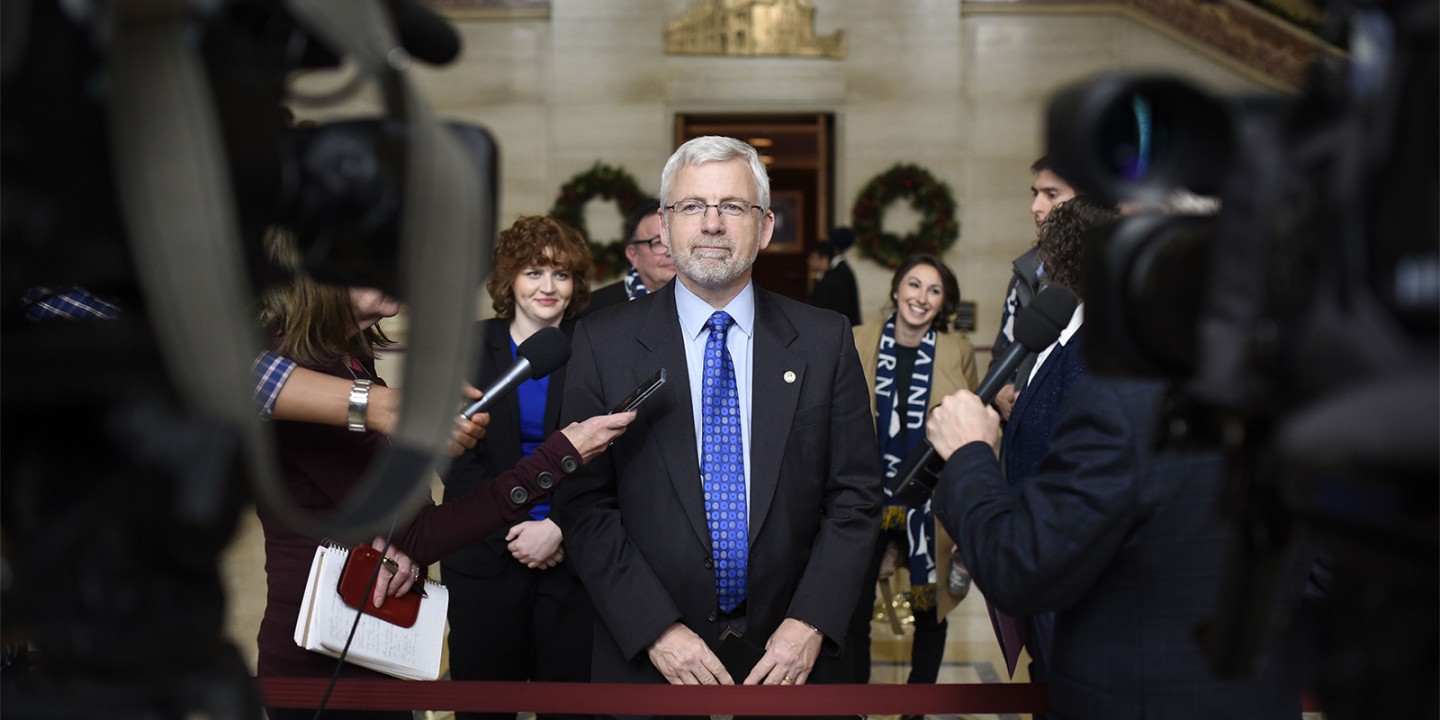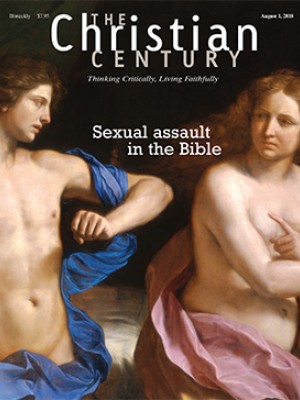Proposed Christian law school reconsiders sexual conduct restrictions after Canadian court ruling
Law societies denied accreditation to the program at Trinity Western University, an evangelical school in British Columbia, citing its community covenant as discriminating against LGBTQ applicants.

Efforts to open what would be Canada’s first private law school and first Christian law school hit an obstacle when the Supreme Court of Canada ruled against its accreditation because of the school’s policy requiring students to sign a covenant prohibiting sexual intimacy outside of heterosexual marriage.
In twin cases, the law societies of Ontario and British Columbia argued that the five-page community covenant of Trinity Western University—which also applies to administrators, faculty, and staff—discriminates against LGBTQ applicants for admission. Canada’s highest court agreed with the law societies in a June ruling.
Read our latest issue or browse back issues.
The majority wrote: “The [Law Society of British Columbia’s] decision prevents the risk of significant harm to LGBTQ people who feel they have no choice but to attend TWU’s proposed law school. These individuals would have to deny who they are for three years to receive a legal education.”
Earl Phillips, executive director of the proposed TWU School of Law, said that the ruling suggested a workaround for the evangelical school, which is based in Langley, British Columbia, and has graduate and undergraduate students.
“The decision seems to emphasize [that the court majority’s] concern was that we have a mandatory community covenant that deals with matters regarding sexual relations, and the implication of that is that if it wasn’t mandatory that it could be acceptable,” Phillips said. “So, this is one of the key issues we have to look at and discern and see if that is a possibility. And then the community has to consider whether any change to the community covenant could be possible.”
On its website the school gives September 2019 as a possible opening date.
The 7–2 ruling was a departure from a 2001 Supreme Court of Canada ruling in TWU’s favor in the case of a teacher training program. The British Columbia College of Teachers, which licenses public school educators, had denied accreditation for the school’s program, claiming the covenant would produce educators biased against LGBTQ youth. But a majority of justices hearing that case ruled in TWU’s favor, noting that “British Columbia’s human rights legislation accommodates religious freedoms.” Today, TWU’s School of Education graduates are licensed to teach across the country.
Richard Moon, a law professor at the University of Windsor in Ontario specializing in freedom of conscience and religion, said of the June decision, “The majority makes it sound as if the TWU program should be accredited by the law societies if they were to remove the covenant, particularly the element that has the effect of excluding gay [or] lesbian students.”
Moon suggested the court majority may have supported the law societies because of the justices’ own experiences entering the legal profession decades ago when there were fewer law schools. There are now 22 law schools operated by public universities in Canada.
“Unfortunately, TWU didn’t make the argument that admission to law school is not the same gateway or barrier that there once was,” Moon said. Another missed argument, he said, was whether “it’s legitimate for law societies to be concerned about the exclusion of gay and lesbian students” without being “equally concerned about exclusion of evangelical Christians.”
Critics of the ruling note that the Canadian Charter of Rights and Freedoms contains a section guaranteeing “freedom of conscience and religion,” which previously was seen as protecting sectarian groups’ free exercise rights. But supporters note that same-sex marriage became legal in Canada in 2005.
Barry W. Bussey, director of legal affairs for the Canadian Council of Christian Charities, said the majority’s emphasis on unwritten “charter values” transcends the charter’s written guarantees.
“It now depends on the idiosyncrasies of the judicial mind,” Bussey said. Referring to the 2001 case, he added, “What they’ve done is ignored it. When it comes to precedent, the Canadian court feels it’s no longer bound by that.” —Religion News Service, with added information
FOLLOWING UP (Updated March 12, 2019): Trinity Western University saw its donations and enrollment increase after dropping a requirement that students sign a covenant promising to refrain from “sexual intimacy that violates the sacredness of marriage between a man and a woman,” Religion News Service reported. While signing the code of conduct is now voluntary for students, the school noted that faculty and staff still have to sign the covenant annually. “The response has been largely positive and has been seen as a necessary step towards creating a true gospel-centric community,” director of marketing James Tweedy told RNS.
A version of this article appears in the print edition under the title “Canadian court rules against accreditation bid by Christian law school.”





